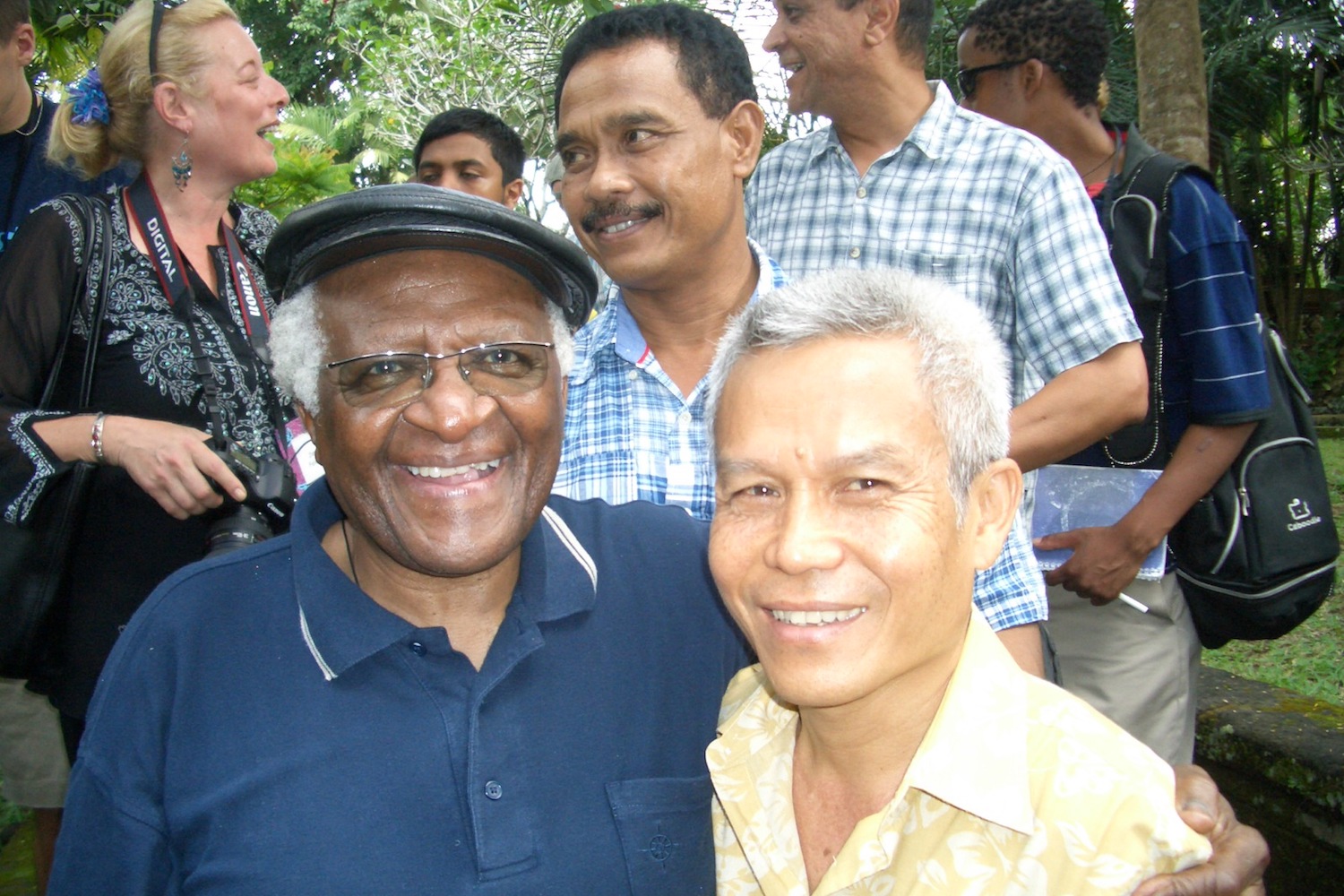Radio Free Asia: 28 May 2019
 More than six years after her husband’s disappearance at a Lao police checkpoint, the wife of rural development advocate Sombath Somphone says her search for answers to her husband’s fate has now reached a dead end.
More than six years after her husband’s disappearance at a Lao police checkpoint, the wife of rural development advocate Sombath Somphone says her search for answers to her husband’s fate has now reached a dead end.
“In talking about pushing the case forward, I have come to a real dead end,” Ng Shui Meng told RFA’s Lao Service, speaking in an interview during this year’s International Week of the Disappeared.
“I have heard from the EU ambassador, the U.K. ambassador, and other ambassadors of Western countries that when they raise the case of Sombath with the Lao government, they are told that they are still investigating,” Ng said.
Now, Lao authorities say they are also investigating unspecified “assets” reportedly held by Sombath, Ng said.
“But instead of talking to me to get any kind of answers about what assets Sombath has, they say they are investigating. And they are talking to the ambassadors based in Vientiane rather than talking to me,” she said.
“The police don’t talk to me. The Lao government and the authorities don’t talk to me,” Ng said.
Forced disappearance
Sombath Somphone disappeared on Dec. 15, 2012, when police stopped him in his vehicle at a checkpoint on the outskirts of Vientiane. He was then transferred to another vehicle, according to a police surveillance video, and has not been heard from since.
Before his abduction, Sombath had challenged massive land deals negotiated by the government that had left thousands of rural Lao villagers homeless with little paid in compensation. The deals sparked rare popular protests in Laos, where political speech is tightly controlled.
His decades of work on behalf of farmers and sustainable agricultural practices helped him win the U.N.’s Human Resource Development Award for empowering the rural poor in Laos, and later the prestigious Ramon Magsaysay Award for Community Leadership.
Though authorities have denied any responsibility, Sombath’s abduction is widely acknowledged to be an enforced disappearance—the arrest or detention of an individual by state officials or their agents followed by a refusal to disclose the fate or whereabouts of the person or a refusal to acknowledge the deprivation of their liberty.
Tough questioning
In a July 11-12 meeting of the U.N. Human Rights Committee held in Geneva, Switzerland, Lao government representatives evaded tough questioning in the case, drawing attention instead to what delegate Bounkeut Sangsomsak called previously unreported assets held by Sombath, including parcels of land and property in the Lao capital Vientiane worth from 1 to 2 million U.S. dollars.
“Where did all this money come from?” Bounkeut asked.
In a statement, deputy Asia director for Human Rights Watch Phil Robertson said the Lao government is “still engaged in a systematic cover-up of their direct responsibility for the enforced disappearance of Sombath Somphone.”
“At every step of the way, powerful people in Vientiane have sought to frustrate the efforts of Sombath’s family, and by the international community, to find out what the government did to Sombath.”
“These authorities have also played games with Sombath’s property, denying official documents to the family that would allow them to take care of Sombath’s personal and financial arrangements,” Robertson added.
“The way Laos has treated this whole situation is despicable, and the Lao government deserves utter condemnation for their actions.”
Reported by RFA’s Lao Service. Translated by Max Avary. Written in English by Richard Finney.




 As families and rights groups prepare to mark the seventh anniversary Sunday of prominent Lao activist Sombath Somphone’s disappearance, the families of two other missing activists are lamenting the lack of answers from the communist government on their loved ones.
As families and rights groups prepare to mark the seventh anniversary Sunday of prominent Lao activist Sombath Somphone’s disappearance, the families of two other missing activists are lamenting the lack of answers from the communist government on their loved ones.
 Sombath Somphone, a well-known civil society organizer, is the most famous “forced disappearance” in Laos.
Sombath Somphone, a well-known civil society organizer, is the most famous “forced disappearance” in Laos.


 More than six years after her husband’s disappearance at a Lao police checkpoint, the wife of rural development advocate Sombath Somphone says her search for answers to her husband’s fate has now reached a dead end.
More than six years after her husband’s disappearance at a Lao police checkpoint, the wife of rural development advocate Sombath Somphone says her search for answers to her husband’s fate has now reached a dead end.
 UN Special Rapporteur on poverty and human rights plans to refer the reclusive authoritarian nation to the UN Human Rights Council for a host of abuses and failings
UN Special Rapporteur on poverty and human rights plans to refer the reclusive authoritarian nation to the UN Human Rights Council for a host of abuses and failings